
Big Tech & Speech Summit
At the intersection of content moderation and political power
Become a Breakfast Club MemberFull Program, Speaker Bios and Sponsors
In person or online attendees may access the videos. Members of the Broadband Breakfast Club also have full access.
Video page:

Big Tech & Speech Summit Program
Tuesday, March 9, 2023 | WASHINGTON D.C.
KEYNOTE ADDRESS: REP. GUS BILIRAKIS
Chairman of the House Innovation, Data and Commerce Subcommittee
SPECIAL ADDRESS: ELI NOAM
Director, Columbia Institute for Tele-Information
PANEL 1: THE BIG PICTURE FOR BIG TECH
It’s safe to say that Big Tech is no longer Washington’s favored child. Silicon Valley and the Big Tech giants that it has spawned — including Google, Facebook, Twitter, Netflix, Apple and others — are under a microscope as never before. What accounts for this shift? Has reverence for the mantra “move fast and break things” become revulsion at what Big Tech has done to our brains?
• Drew Clark, Editor and Publisher, Broadband Breakfast (moderator)
• Steve DelBianco, President and CEO, NetChoice
• Willmary Escoto, U.S. Policy Analyst, Access Now
• Amy Peikoff, Head of Policy and Legal, Parler
• Dane Snowden, Senior Advisor, Wilkinson Barker Knauer, LLP
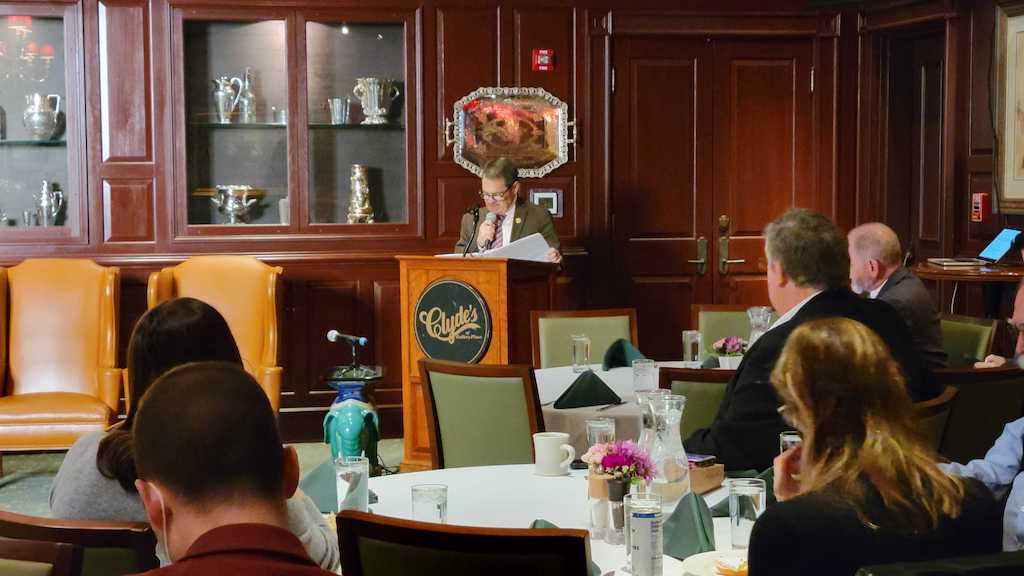
SPECIAL ADDRESS: JOHN SAMPLES
Vice President, Cato Institute

PANEL 2: THE FRAGILITY OF SECTION 230
Section 230 has been referred to as “the 26 words that created the internet.” The law allows online platforms to engage in content moderation without accepting liability for third-party content. With the Supreme Court digging deeply into the law, the internet’s foundation might be at risk. Plus, Congress is considering proposals to require greater transparency of platforms’ algorithms. Others want to force social networks to be hands-off. Still others want them to more actively police misinformation. Who will force changes upon Section 230 practices: The President, Congress, the High Court or the marketplace?
• Cathy Gellis, Attorney (moderator)
• Matthew Bergman, Founding Attorney, Social Media Victims Law Center
• Ashley Johnson, Senior Policy Analyst, Information Technology and Innovation Foundation
• Emma Llansó, Director, Free Expression Project, Center for Democracy & Technology
• Chris Marchese, Counsel, NetChoice
• Ron Yokubaitis, Founder, Texas.net, Inc.
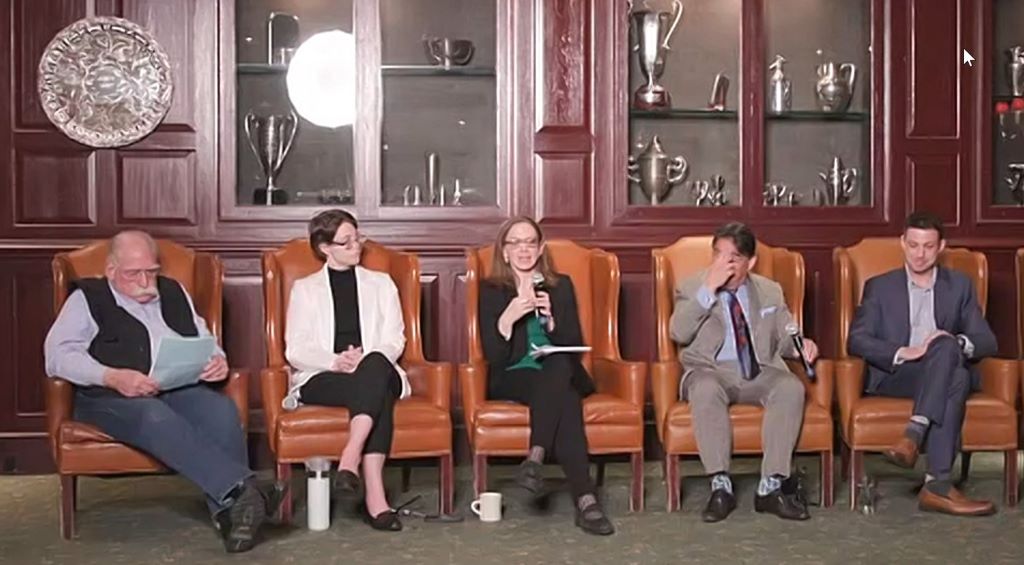

SPECIAL ADDRESS: ADAM CONNER
Vice President for Technology Policy, American Progress
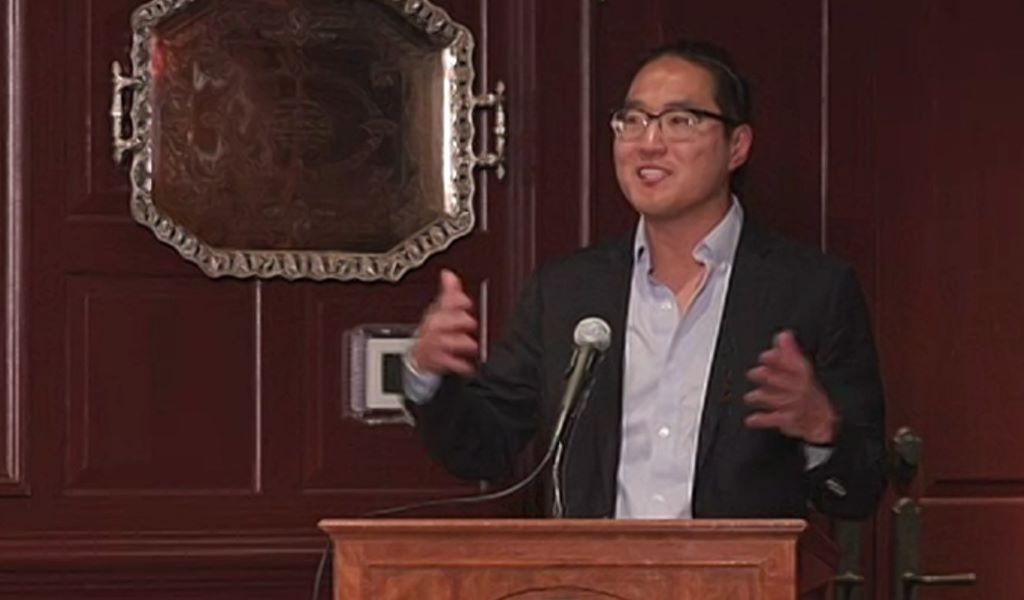
PANEL 3: REGULATING DATA PRIVACY
Federal privacy legislation was introduced to bipartisan acclaim in 2022. But the bill died in Congress, leaving states to set their own digital privacy rules to govern digital privacy. The time children and adults spend online is heightening attention on potentially harmful effects of digital immersion. What kind of guardrails are states putting in place? How can Congress or federal regulators respond to rapidly developing changes in the tech industry?
• John Verdi, Senior Vice President of Policy, Future of Privacy Forum (moderator)
• Alan Butler, Executive Director and President, Electronic Privacy Information Center
• Sara Collins, Senior Policy Counsel, Public Knowledge
• India McKinney, Director of Federal Affairs, Electronic Frontier Foundation
• Carl Szabo, Vice President & General Counsel, NetChoice
• Shane Tews, Nonresident Senior Fellow, American Enterprise Institute
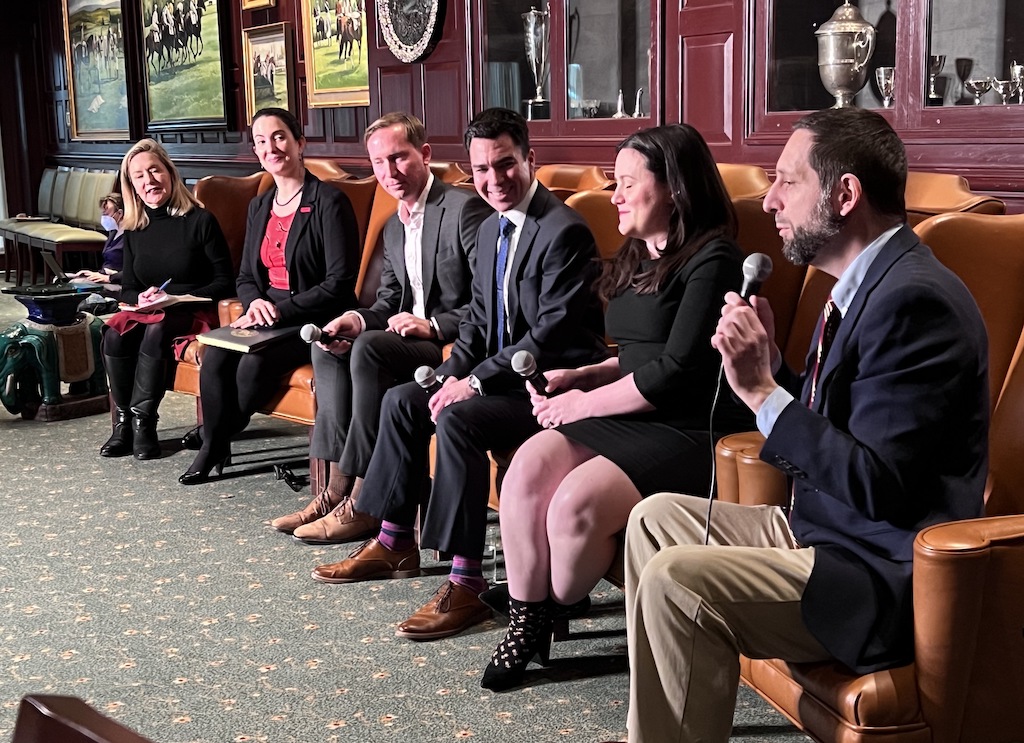
PANEL 4: INNOVATION, COMPETITION AND FUTURE TECH
Panel 4 will address the realities about innovation and competition.For example, artificial intelligence has taken huge strides in the past few years. How will the power of AI be harnessed? Is government regulation needed? And what about the promised “metaverse:” A fad or a game changer? Some lawmakers, on both the right and the left, agree with the President that Big Tech stifles innovation. Who’s correct? And how will innovation and competition move forward in the future?
• Sara Morrison, Senior Reporter, Recode by Vox (moderator)
• Christine Bannan, U.S. Public Policy Manager, Proton
• Sacha Haworth, Executive Director, Tech Oversight Project
• Cheyenne Hunt-Majer, Big Tech Accountability Advocate, Public Citizen
• Adam Kovacevich, CEO, Chamber of Progress
• Berin Szóka, President, TechFreedom Foundation

PREVIEW SESSION
In a March 1 preview session, the Big Tech & Speech Summit moderators set the stage for timely discussions on content moderation, privacy and competition, as well as hearing from audience members about the biggest Big Tech questions on their minds.
• Drew Clark, Editor and Publisher, Broadband Breakfast (moderator)
• Cathy Gellis, Attorney
• John Verdi, Senior Vice President of Policy, Future of Privacy Forum
• Sara Morrison, Senior Reporter, Recode by Vox
Watch a recording of the preview session online here.
SPEAKER BIOS

Rep. Gus Bilirakis (keynote address)
Congressman Gus M. Bilirakis is a Republican representing Florida's 12th Congressional District, which includes all of Citrus and Hernando counties and most of Pasco County. Gus serves as a Senior Member of the Energy and Commerce Committee. He is the Chairman of the Innovation, Data and Commerce Subcommittee. He is also a Senior Member of the Health Subcommittee and the Communications and Technology Subcommittee. Working in a bipartisan manner, his main priorities include controlling government spending, creating jobs for middle class Americans, finding ways for government to operate smaller and smarter, and lowering taxes.

Adam Conner (special address)
Adam Conner is the vice president for technology policy at American Progress, where he focuses on building a progressive technology policy platform and agenda. Conner has spent the past 15 years working at the intersection of technology, politics, policy and elections as the first Washington D.C. employee for several Silicon Valley companies, including Slack Technologies and Brigade. In 2007, Conner founded Facebook’s Washington office and spent several years on the public policy team.

Eli Noam (special address)
Eli Noam has been a professor of economics and finance at the Columbia Business School since 1976, and the director of the Columbia Institute for Tele-Information. He served as New York State's Public Service Commissioner regulating the telecom and energy industries, on the White House Presidential Board on information technology, and on private sector, governmental, and NGO boards and commissions. His 37 books and textbooks, and over 350 articles, cover domestic and international telecom, internet, film, TV, e-finance, e-commerce and IT.

John Samples (special address)
John Samples is a vice president at the Cato Institute. He founded and directs Cato’s Center for Representative Government, which studies the First Amendment, government institutional failure and public opinion. Samples serves on Facebook’s independent Oversight Board, which provides final and binding decisions on whether specific content should be allowed or removed from Facebook and Instagram.
PANEL 1: THE BIG PICTURE FOR BIG TECH

Drew Clark (moderator)
Drew Clark is CEO of Breakfast Media LLC. He has led the Broadband Breakfast community since 2008. An early proponent of better broadband, better lives, he initially founded the Broadband Census crowdsourcing campaign for broadband data. As Editor and Publisher, Clark presides over the leading media company advocating for higher-capacity internet everywhere through topical, timely and intelligent coverage. Clark also served as head of the Partnership for a Connected Illinois, a state broadband initiative.

Steve DelBianco
Steve DelBianco is the president and CEO of NetChoice. Steve is a well-known expert on internet governance, online consumer protection and internet taxation. He has provided expert testimony in 25 congressional hearings and many more state legislative sessions. Prior to NetChoice, DelBianco was the founder and president of Financial Dynamics, an IT consulting firm that he led through the evolution of industry trends. DelBianco holds degrees in Engineering and in Economics from the University of Pennsylvania, plus an MBA from the Wharton School.

Willmary Escoto
Willmary Escoto is a U.S. Policy Analyst for Access Now where she works on issues around content governance, privacy, artificial intelligence, and data protection. She previously served as the Director of Policy and Government Affairs for the National Hispanic Media Coalition and was hosted by Public Knowledge as a Google Policy Fellow in 2016. Willmary received her J.D. from Howard University and is licensed to practice law in Washington D.C.

Amy Peikoff
Amy Peikoff is the chief policy officer of Parler. After completing her Ph.D., she taught at several universities and law schools, publishing frequently cited academic articles on privacy law, as well as op-eds in leading newspapers across the country on a range of issues. Just prior to joining Parler, she founded and was President of the Center for the Legalization of Privacy, which submitted an amicus brief in United States v. Facebook in 2019.
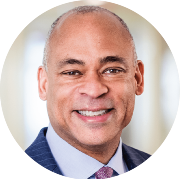
Dane Snowden
Dane started his communications career 20 years ago as the first Chief of the Consumer & Governmental Affairs Bureau at the Federal Communications Commission, where he focused on disability access, telemarking rules, consumer complaints and consumer policy. Joining CTIA–The Wireless Association as its first Vice President of External & State Affairs, Dane created and directed the association’s 50-state policy program and external affairs efforts. Recognized for his leadership, Dane was tapped to be the first Chief Operating Officer of the NCTA–The Internet & Television Association, and later entered the tech industry as president and CEO of the Internet Association, focused on privacy and content moderation.
PANEL 2: THE FRAGILITY OF SECTION 230

Cathy Gellis (moderator)
Frustrated that people were making the law without asking for her opinion, Cathy Gellis gave up a career in web development to become a lawyer to help them not make it badly, especially regarding technology. A former aspiring journalist and longtime fan of civil liberties, her legal work includes defending the rights of Internet users and advocating for policy that protects speech and innovation. When not advising clients on platform liability, copyright, trademark, privacy or cybersecurity, she frequently writes about these subjects and more for a variety of outlets.

Matthew Bergman
Matthew Bergman is an attorney, law professor, philanthropist and community activist. He is the founder of the Social Media Victims Law Center and Bergman Draper Oslund Udo, a professor at Lewis & Clark Law school, and on the boards of directors of nonprofit institutions in higher education, national security, civil rights, worker protection and the arts. Matthew is nationally known for his work in product liability litigation and has recovered over $1 billion on behalf of his clients.

Ashley Johnson
Ashley Johnson is a senior policy analyst at the Information Technology and Innovation Foundation. She researches and writes about internet policy issues such as privacy, security, and platform regulation. She was previously at Software.org: the BSA Foundation and holds a master’s degree in security policy from The George Washington University and a bachelor’s degree in sociology from Brigham Young University.

Emma Llansó
Emma Llansó is the director of the Free Expression Project at the Center for Democracy and Technology, where she has worked since 2009 to promote law and policy that supports internet users’ free expression rights. Emma leads CDT’s legislative advocacy and litigation work pertaining to intermediary liability law and constitutional protections for online speech and speakers. She also represents CDT on a variety of intergovernmental and industry advisory councils.

Chris Marchese
As counsel for NetChoice, Chris Marchese analyzes technology-related legislative and regulatory issues at both the federal and state level. His portfolio includes monitoring and analyzing proposals to amend Section 230 of the Communications Decency Act, antitrust enforcement, and potential barriers to free speech and free enterprise on the internet. Before joining NetChoice in 2019, Chris worked as a law clerk at the U.S. Chamber Litigation Center.

Ron Yokubaitis
Ron Yokubaitis was a high-technology visionary before most of us knew what that meant. A native Texan, Ron has held a lifelong passion for electronics and communications — first fueled by obtaining a ham radio license more than 40 years ago. Yokubaitis has co-founded multiple internet-related businesses, including Texas.net, Inc., Giganews, Inc., Data Foundry, Inc. and Golden Frog, Inc. Prior to Texas.net, Ron practiced law in Houston and Austin.
PANEL 3: REGULATING DATA PRIVACY

John Verdi (moderator)
John Verdi is senior vice president of policy at the Future of Privacy Forum, a global think tank based in Washington D.C. John supervises FPF’s policy portfolio, which includes data protection issues ranging from ad tech and AI to legislative analysis and youth privacy. John was previously director of privacy initiatives at the National Telecommunications and Information Administration and general counsel at the Electronic Privacy Information Center.

Alan Butler
Alan Butler is Executive Director and President of the Electronic Privacy Information Center in Washington, D.C. Alan has argued privacy and open government cases in the U.S. Court of Appeals for the D.C. Circuit, the Third Circuit, and the Supreme Courts of New Mexico and New Jersey and has authored briefs on a wide range national security, open government, and data privacy issues. Mr. Butler is also Chair of the Privacy and Information Protection Committee of the ABA Section on Civil Rights and Social Justice.

Sara Collins
Sara Collins is a Senior Policy Counsel at Public Knowledge, specializing in data protection and consumer privacy. She also provides government affairs support on a range of issues like regulating algorithms, protecting local journalism and copyright. She currently serves as an advisory board member for the Future of Privacy Forum and a governing board member for the D.C. Abortion Fund.

India McKinney
India McKinney is director of federal affairs at the Electronic Frontier Foundation, where she fights for consumer privacy and robust surveillance oversight. Prior to joining EFF, she spent over 10 years in Washington D.C. as a legislative staffer. Her work there primarily focused on the appropriations process, specifically analyzing and funding programs in the Departments of Veterans Affairs, Homeland Security and Justice.
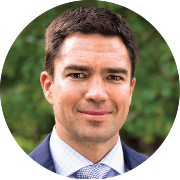
Carl Szabo
Carl Szabo is vice president and general counsel for NetChoice, where he analyzes, advocates and testifies on tech-related legislative and regulatory initiatives relevant to online companies. Szabo is also an adjunct professor of privacy and internet law at George Mason University’s Antonin Scalia Law School. Before joining NetChoice, Szabo was an intellectual property attorney at the lawfirm of Wildman, Harrold, Allen & Dixon where he advised clients on privacy, Internet, e-commerce, and contractual matters.

Shane Tews
Shane Tews is a nonresident senior fellow at the American Enterprise Institute, where she focuses on cybersecurity issues, including privacy and data protection, the Internet of Things, international internet governance, digital economic policy, information and communications technology, artificial intelligence and the metaverse, emerging technologies and more. She is also president of Logan Circle Strategies, a strategic advisory firm.
PANEL 4: INNOVATION, COMPETITION AND FUTURE TECH

Sara Morrison (moderator)
Sara Morrison is a senior reporter at Vox's Recode, where she covers data privacy, antitrust, and Big Tech’s power over us all. Also, TikTok. She previously wrote about technology’s impact on the world for Vocativ, and her work has also appeared in the Atlantic, Jezebel, Nieman Reports, and Columbia Journalism Review, among others.

Christine Bannan
Christine Bannan is the U.S. public policy manager for Proton, a privacy-focused company that provides easy-to-use encrypted email, calendar, file storage, and VPN built on the principle of your data, your rules. Proton Mail is the world's largest end-to-end encrypted email service. She was previously policy counsel at the Open Technology Institute and consumer protection counsel at the Electronic Privacy Information Center.

Sacha Haworth
Sacha Haworth is the executive director of the Tech Oversight Project, a nonprofit that advocates for comprehensive antitrust legislation. She is a veteran of political campaigns all over the country and has worked at the Democratic Congressional Campaign Committee, House Majority PAC and on Capitol Hill. During the 2020 presidential election, Sacha ran the paid media program for American Bridge 21st Century, which used targeted television, radio, digital and mail to persuade former Trump voters in rural areas.

Cheyenne Hunt-Majer
Cheyenne Hunt-Majer is a progressive advocate and attorney specializing in the issues at the intersection of democratic erosion, technology policy, and human rights. She currently serves as a Big Tech Accountability Advocate with Public Citizen. She has drafted legislation and led campaigns to hold tech giants accountable for their role in undermining democratic norms, promoting misinformation, inciting violence, and exploiting user privacy.

Adam Kovacevich
Adam Kovacevich is the founder and CEO of Chamber of Progress, a new center-left tech industry policy coalition promoting technology’s progressive future. Adam is a veteran Democratic tech industry leader and expert in helping lead technology companies through today's challenging political environment. He was named a “Tech Titan” by Washingtonian magazine and an “Antitrust Super Influencer” by Baron Public Affairs.

Berin Szóka
Berin Szóka serves as president of TechFreedom. Previously, he was a senior fellow and the director of the Center for Internet Freedom at The Progress & Freedom Foundation. Before joining PFF, he was an Associate in the Communications Practice Group at Latham & Watkins LLP, where he advised clients on regulations affecting the Internet and telecommunications industries.
SPONSORS
NetChoice is a coalition of trade associations, eCommerce businesses and online consumers, all of whom share the goal of promoting convenience, choice and commerce online. NetChoice works to make the internet safe for free enterprise and free expression by promoting competition, light-touch regulation and consumer choice.
In 1994, Ron and Carolyn Yokubaitis founded Texas.Net in San Antonio, Texas to provide internet services to businesses. The company has grown from a regional internet service provider to a full-scale provider of premier wholesale and retail data center outsourcing, colocation and disaster recovery services.









